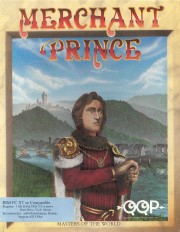|
Home
|
Feb 15, 2021
This week’s themeTo hyphenate or not to hyphenate? This week’s words merchant prince journeyman gold-digger roughhouse body blow 
Image: Moby Games Previous week’s theme There’s a word for it! A.Word.A.Day
with Anu GargThis week’s guest wordsmith Janet Rizvi (janetrizvi at gmail.com) writes: Anu is fond of tosspot words, also words made of combining forms. But I don’t think he’s featured a week of what I’d call double-noun words. Perhaps it would be fun to consider what happens when two nouns run together to make a new concept. In his theme of words relating to space, Anu used light-year and moon shot. I would probably have written “light year” and “moonshot”. Is either of us wrong, or right? German is unapologetic about stringing words together without hyphens to express a complex idea; either snappy two-item numbers like Zeitgeist and Schadenfreude, or stretching to the horizon like Vierwaldstätterseedampfschiffgesellschaft (Lake Lucerne Steamship Company), spotted by my mother 90 years ago and never forgotten. English, by contrast, rarely amalgamates more than two words. And there doesn’t seem to be any rule for hyphenating or not hyphenating compound words, or leaving them separate. Seems a bit arbitrary, depending on the mindset (mind-set?) of the writer. Even The Chicago Manual of Style, the writer’s bible, doesn’t give clear guidance. You could theorize that when a combination of two nouns becomes common currency, initially the words are simply juxtaposed (master class, income tax), gradually a hyphen insinuates itself (light-year, water-closet), and as the compound word becomes more and more familiar the hyphen is dropped (steamship, masthead). Finally, the two words bond so closely that it’s an effort to recall that they were ever separate (shepherd, rainbow). You could also theorize that longer words tend to remain separate. “Class distinction” has been around for a long time without the words joining together; and conversely, “witchcraft” contradicts the possible theory that an unwieldy cluster of consonants might be an obstacle to words welding together. Still, I can discern no hard and fast rule; and I’ve noticed that double-noun words coined to meet the needs of the digital age tend to skip straight to the last stage of the process I’ve theorized, with no separation and no hyphen (photoshop, website). These are all double nouns used as nouns, as “you need to work on your anger management”. But I think when you use them as adjectives, the separated ones do need a hyphen: I for one would certainly go for an anger-management course, or complete my income-tax return. So for this week, I offer five double-noun words, with or without hyphens, run together or separate, as I would present them. See if you agree or not.
Janet Rizvi, brought up in Scotland, has spent most of her adult life
in India. Historian, freelance researcher, and author, she has always
been interested in words. She tends to the old-fashioned, deploring
for instance, the recent fad for “multiple” instead of the perfectly
serviceable “many”; and mourning the near-demise of “whom”. At the
same time, she understands that language does, and must, change and
evolve, even if it does so faster than her sensibilities can keep up.
She is the author of Ladakh, Crossroads of High Asia (Oxford University Press), Trans-Himalayan Caravans: Merchant Princes & Peasant Traders in Ladakh (Oxford University Press), and Pashmina: The Kashmir Shawl & Beyond (Marg Publications). merchant prince
PRONUNCIATION:
MEANING:
noun: A merchant or businessman with sufficient wealth to wield political power.
ETYMOLOGY:
Alluding to someone who has acquired great wealth and behaves like a
prince. From merchant, from Latin mercari (to trade), from merx (goods)
and prince, from primus (prime) + capere (to seize). Earliest
documented use: 1760.
NOTES:
Isaiah 23:8 asks “Who hath taken this counsel against Tyre, the
crowning city, whose merchants are princes, whose traffickers [traders]
are the honourable of the earth?” (KJV)
USAGE:
“This man understands the art of the deal. He wants to be the merchant
prince of Northwest Texas, and this railroad can do just that for him
and for all of you.” Sara Luck; Claiming the Heart; Pocket Books; 2012. A THOUGHT FOR TODAY:
The sun, with all those planets revolving around it and dependent upon it,
can still ripen a bunch of grapes as if it had nothing else in the universe
to do. -Galileo Galilei, physicist and astronomer (15 Feb 1564-1642)
|
|
Subscriber Services
Awards | Stats | Links | Privacy Policy
Contribute | Advertise
Awards | Stats | Links | Privacy Policy
Contribute | Advertise
© 1994-2026 Wordsmith